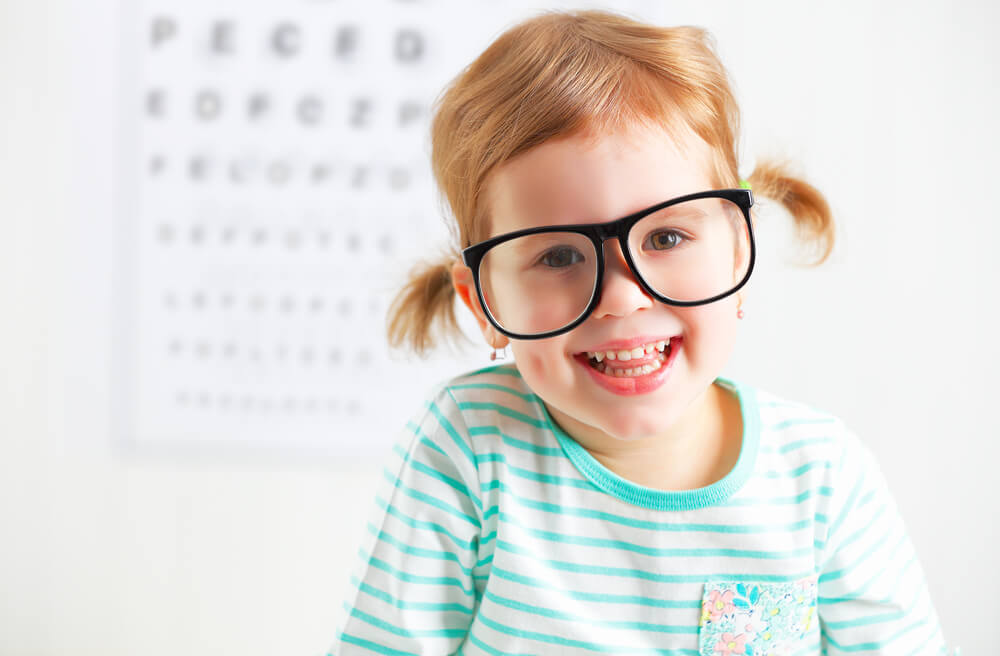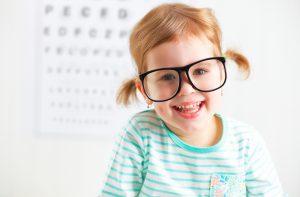Myopia is not some unfamiliar rare condition
When was the last time you looked around and took note of how many people are wearing glasses? If you yourself don’t wear glasses, I am sure you know someone who does. Did you know that myopia, which is commonly known as nearsightedness, is the most common reason why people wear corrective glasses? But having myopic eyes is a lot more than blurry vision and the need for glasses. Having myopia puts you at a much higher risk for many medical eye conditions such as retinal detachments, cataracts, glaucoma, and myopic retinopathy, which often can be devastating and lead to blindness in the eyes.
What exactly is myopia? Myopia, also known as nearsightedness or short-sightedness, is the result of light (visual stimuli) entering the eye and instead of being focused directly on the retina (the inner layer of the eye responsible for processing vision), it is focused in front of the retina. This defocus is what leads to blurry vision, similar to a camera lens being out of focus and producing a blurry picture. It is for this reason, it became known as “short-sightedness” or nearsightedness because the light entering the eye is “short” or “near” of the retina and not directly focused on it. Only when light is focused precisely on the retina, will images be processed in a clear and focused manner. Luckily, spectacle lenses (i.e. glasses) or contact lenses can refocus light on to the retina and produce a clear image for us to enjoy clear vision all day long. Unfortunately, this only acts as a visual aid and does not address the physical condition of the eye. Myopic eyes are longer than non-myopic eyes, and this elongation leads to stretching of the retinal tissue inside the eyeball, which can lead to long term eye health issues, including blindness. It is precisely for this reason that myopia is viewed as a medical condition with risks and consequences if untreated.
What causes myopia? There has been extensive research over the last 100 years to determine what causes myopia, and to this day scientists and researchers do not fully understand the root cause of myopia. There are, however, several risk factors that put us at risk for developing myopia. The most accepted risk factors found in research are genetics and near activities. Say, for example, both of your parents have myopia, the chances of you having myopia are much greater (45% prevalence versus 7.3% when no parents have myopia). The other risk factor, near activities, has been implicated as a risk factor due to the visual strain on our eyes when focusing at a close distance. This visual strain is a trigger for the eye to send signals to grow and elongate in length, thereby increasing myopia. Many studies have demonstrated a direct correlation between myopia and time spent outdoors, and consequently, they found that children who spend more time outdoors, are less likely to be myopic.
How common is myopia? Current studies show that the global prevalence of myopia is 30%, but there is an alarming trend and it is predicted that by 2050, nearly 50% of the population, or 5 billion people will be myopic. It precisely for this reason that we now have a Myopia Epidemic.
What can we do to stop this epidemic and limit the devastating effects myopia has on the health of our eyes? Well for starters, we have to catch myopia early if we want to make an impact, as there is no medical or scientific method to reverse myopia. Myopia control/management is a safe, science-based, treatment plan that targets the progression of myopia and aims to slow down or stop the progression of myopia. Myopia control utilizes custom contact retainer lenses, enhanced multifocal soft contact lenses, and eye drops to slow the abnormal elongation of the eye. Studies have shown that with myopia control we can stop progression by more than 50% in developing eyes.
So, the next time you take your kids for their annual eye exams, make sure to inquire about myopia control/management. Take the proactive approach of ensuring healthy eyes for their future. After all, our whole world is what we see, and only through maintaining healthy eyes, will we be able to enjoy all the beautiful things in life.
MyopiaControlMD.com


